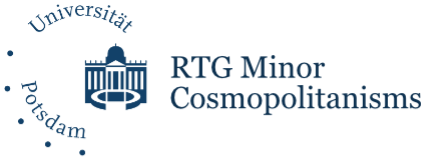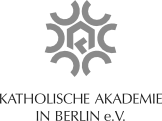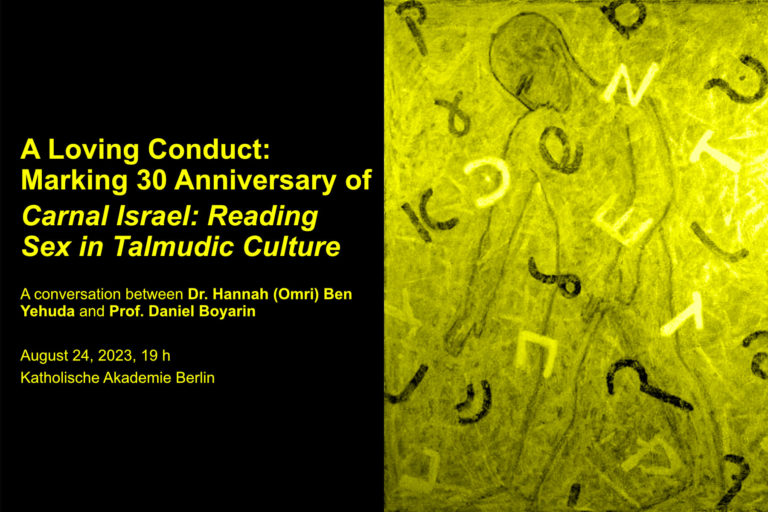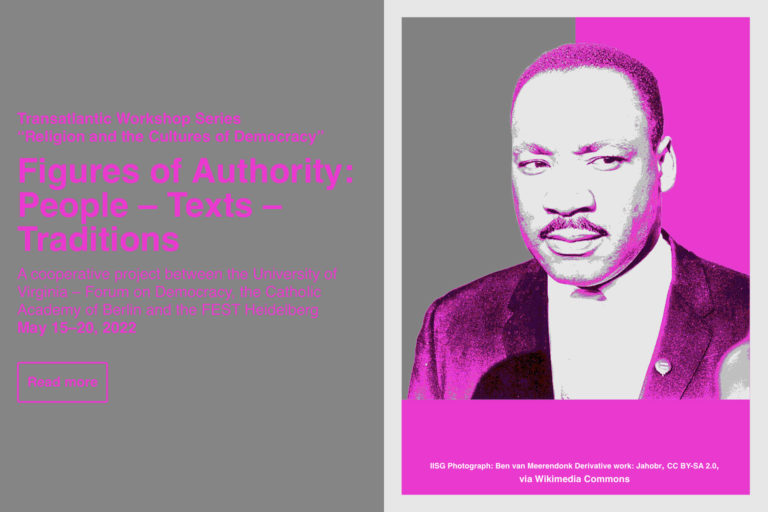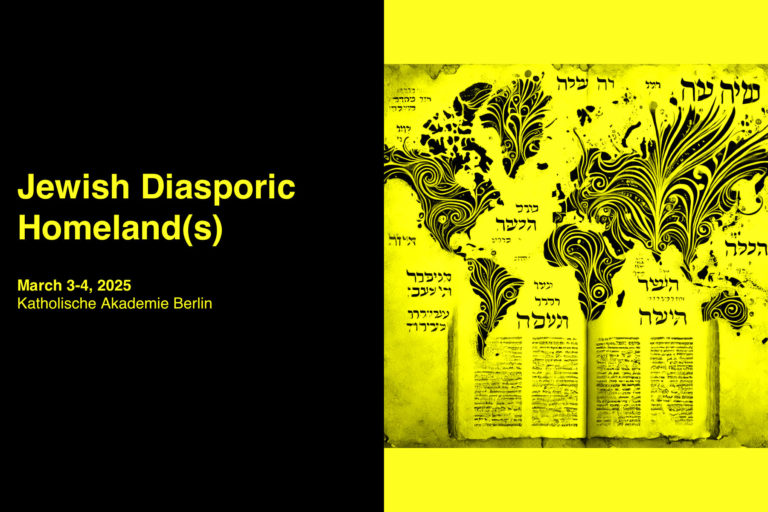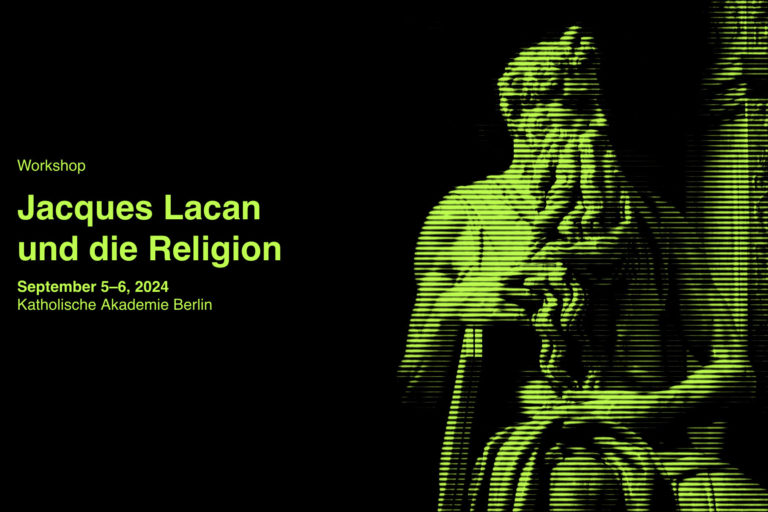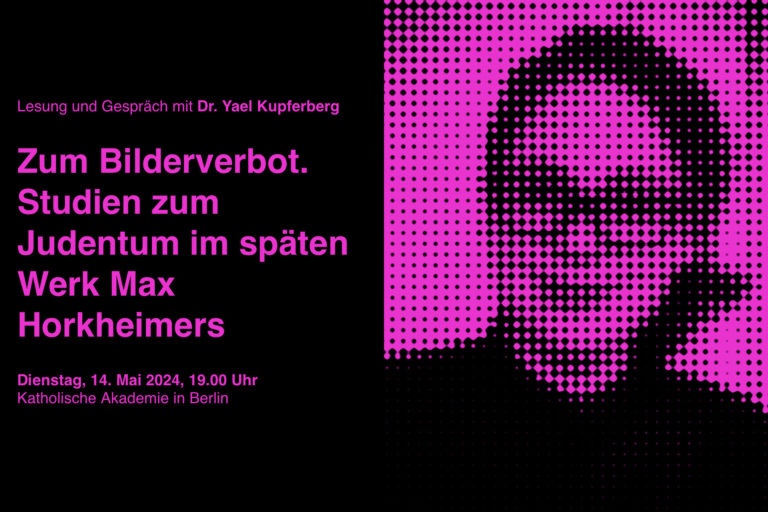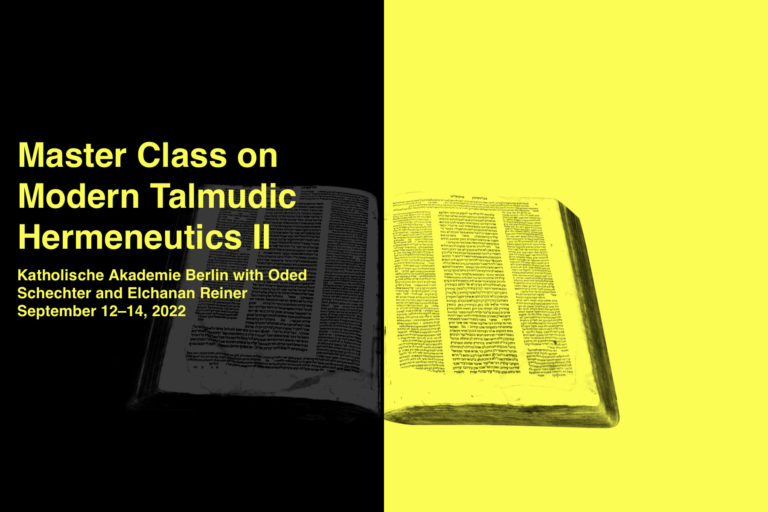60 Years after the Algerian War:
Interculturality in the Postcolonial Age
In cooperation with the research group Minor Cosmopolitanisms and the research project RePLITO.
October 25–27, 2022 Katholische Akademie Berlin
60 Years after the Algerian War: Interculturality in the Postcolonial Age
Over the six decades since it officially ended, the Algerian War has become a key event for marking, retrospectively, the beginning of a new era in European, Western and global history. This new era is characterized by the proclaimed end of Western hegemony – by the proclaimed end of European history as global, universal history. This era, our era, understands itself as the time after the domination of the West, a time or multiple times of “post”: the time of postcolonialism, but also postmodernity, postsecularism, posthumanism.
The times of “post” are characterized by a fundamental reconfiguration of the relations between European civilization and its Others, first and foremost by the proclaimed split between Europe and its Others, and more generally by the disintegration, disruption and dispersion of the – allegedly – unified space of culture, knowledge and discourse. The postcolonial era is an era of diversity and difference, an era of dispersions and diasporas, where the space of culture is a space of multiple cultures, a space of in-between, of “inter”: the space of the intercultural, but also the interreligious, interethnic, interracial and inter-epistemic.
This conference will reflect on the “inter” in the time of “post”. We invited scholars, thinkers, intellectuals and artists to discuss various aspects and models of intercultural dynamics that have been developed and articulated in the aftermath of the Algerian War or of other events that marked the decline of Western hegemony, such as the Second Vatican, May 1968 or the Vietnam War. How did the age of decolonization reshape the discourse and practice of intercultural relations? To what extent interculturality itself is a sign or a site of decolonization? To what extent, on the contrary, intercultural relations may reproduce colonial or generate neocolonial patterns?
Contributions examine the emergence of intercultural notions and practices in various intellectual traditions, European or non-European; the development of new categories and constellations of identity, otherness and dialogue; the interrelations between epistemic, cultural, discursive, religious and political aspects; as well as reactions to these new developments and various forms of critique and resistance. We are especially interested in how this reflection may shed light on socio-political and cultural phenomena, trends and concerns of the present time.
Livestream on Youtube
October 25, 19 h
Intercultural Relations in Postwar Algerian Literature
October 26, 19 h
The Postcolonial Question in Germany Today
Organizers: Elad Lapidot, Yael Attia and Hannah Tzuberi
Organized by The Berlin Center for Intellectual Diaspora, in cooperation with the research group Minor Cosmopolitanisms and the research project RePLITO.
Next to academic debates, the conference will also include events that approach the question of intercultural relations from literary, artistic and musical perspective. Accordingly, the program will include a public discussion with experts on Algerian literature, a panel with Berlin-based artists who work on postcolonial issues, and a concert of intercultural music performance by vocal artists.
Participant
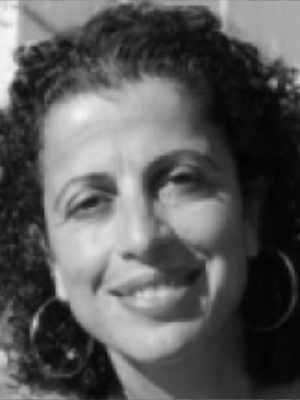
Sadia Agsous-Bienstein is a specialist in Arabic and Hebrew languages, literature and culture and teaches in the Department of Arabic Studies at the University of Paris 8 Vincennes. Her current research is rooted in cultural studies, translation studies and modern Arab thought and focuses on Palestinian culture in Israel, Jewish-Arab relations in Palestine, the Palestinian cultural archive “pre-1948” and the response of Arab intellectuals and writers to European anti-Semitism and the Shoah. She is an associate member of the Institute for Research and Studies on the Arab and Muslim Worlds (IREMAM).
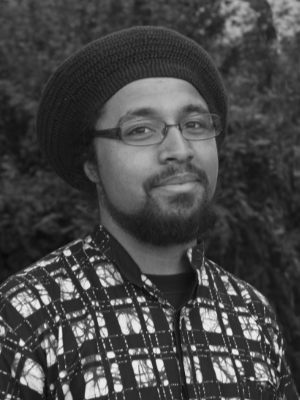
Joshua Kwesi Aikins is a political scientist and Ph.D. candidate at the University of Kassel and senior researcher with Berlin-based NGO Citizens for Europe. His research interests include the interaction between western-style and indigenous political institutions in Ghana, post- and decolonial perspectives on ‘development,’ cultural and political representation of the African Diaspora, equality data, coloniality and the politics of memory in Germany. As an academic and an activist, Aikins is involved in various projects in both Germany and Ghana. As a policy officer with Diakonie Bundesverband, he coordinated, co-wrote, and presented the parallel report to Germany’s state report to the United Nations Committee on the Elimination of Racial Discrimination (2013 – 2015). As a member of the board of advisers for the Initiative Schwarze Menschen in Deutschland (Initiative Black People in Germany), he contributes both policy analysis and advocacy. Most recently, he is co-author of the Afrozensus, the first comprehensive survey of Black, African and Afrodiasporic people in Germany, and of the framing paper “Racism and Climate (In)Justice – How Racism and Colonialism shape the Climate Crisis and Climate Action” (both freely available online).
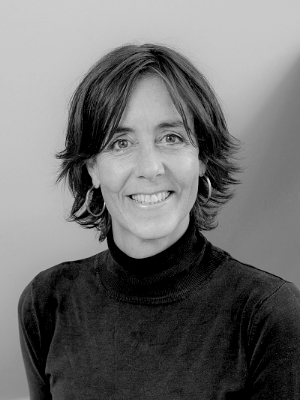
Schirin Amir-Moazami is Professor of Islam in Europe at the Institute of Islamic studies at Freie Universität Berlin. She studied Political Sciences and Sociology in Frankfurt/Main, Berlin, Aix-Marseille and Paris. She holds a PhD from the European University Institute in Florence, Department of Social and Political Sciences.
Schirin Amir-Moazami published widely on topics related to Muslims in Europe, especially Germany and France, with a focus on political secularism, the politics of knowledge production, body politics and governmentality. She is the editor of the volume “Der inspizierte Muslim. Zur Politisierung der Islamforschung in Europa” with transcript and the author of the monograph: „Interrogating Muslims. The Liberal-Secular Matrix of Integration” that will be published with Bloomsbury Press in spring 2022
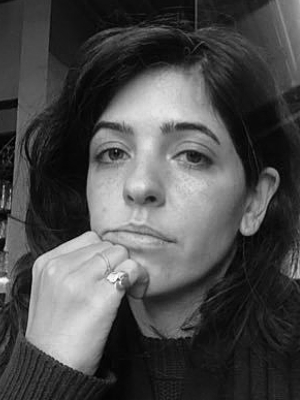
Yael Attia is a doctoral fellow at the RTG Minor Cosmopolitanisms. In her current project, The (post)colonial Other of Modern Jewish Thought, she seeks to trace the constitutive role of Jewish colonial experiences in North Africa as formative to modern Jewish political thinking, as it emerged in a series of Francophone intellectuals: Hélène Cixous, Albert Memmi and Jacques Derrida. She also hosts the official podcast of her program. An edited volume she co-edited, titled: Minor Perspectives on Modernity: Jewish Studies and Decolonial Thought is forthcoming from Nomos Verlag.
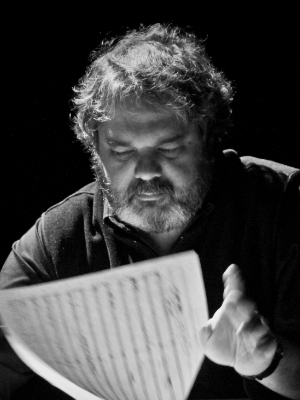
Sandeep Bhagwati is a multiple award-winning composer, poet, academic researcher, theatre director and media artist. His compositions and comprovisations (including 6 operas) are regularly performed worldwide. Many of his works are evening-length multi-arts projects – in which he writes, directs, and conducts. He has founded, curated and directed new music festivals in Munich, Berlin and Karlsruhe, as well as long-term inter-traditional projects with Asian musicians and prominent European ensembles . He is a prolific writer on music and artistic research, mostly for German radio and magazines, but also for academic journals and books. A Canada Research Chair for Inter-X Art at Concordia University from 2006-2016, he also was Professor at Karlsruhe Music University, Composer-in-Residence/Fellow/Guest Professor at IRCAM, ZKM, Beethoven Orchestra Bonn, IEM Graz, CalArts Los Angeles, Heidelberg University, University of Arts Berlin and Tchaikovsky Conservatory Moscow. At Concordia, he currently directs matralab, a research/creation center for performing arts. His current work centers on comprovisation, trans-traditional aesthetics, gestural & sonic theatre and situative, non-visual scores and the role of music in decolonialization and Anthropocene/climate change issues. From 2008 to 2011, he also was the director of Hexagram Concordia.
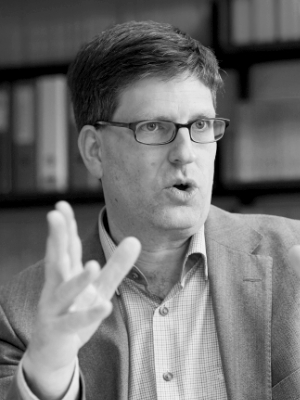
Daniel Bogner hat Theologie, Philosophie und Politikwissenschaft (Münster und Fribourg) studiert. In seiner Lizentiatsarbeit bei Prof. Johann Baptist Metz befasst er sich mit der Politischen Theologie von Carl Schmitt (1996). Sein Doktorat im Fach Fundamentaltheologie (2001) zum Denken des französischen Kulturwissenschaftlers und Religionshistorikers Michel de Certeau führte ihn zu einem längeren Forschungsaufenthalt nach Paris. Anschliessend wechselte er in das Feld gesellschaftlich-politischen Handelns und war von 2000 bis 2006 als Referent für Menschenrechtsfragen im Sekretariat der deutschen Bischofskonferenz tätig. Sein Habilitationsstudium nahm er am Max-Weber-Kolleg für kultur- und sozialwissenschaftliche Studien an der Universität Erfurt unter Betreuung von Prof. Hans Joas auf. Die Habilitation erfolgte nach einer Forschungstätigkeit am Exzellenzcluster “Religion und Politik” an der Universität Münster (2012) mit einer Arbeit unter dem Titel “Das Recht des Politischen. Ein neuer Begriff der Menschenrechte”.
2013 trat er eine Professur für Moraltheologie und Sozialethik am Religionspädagogischen Institut in Luxemburg an. Seit 2014 ist er Ordentlicher Professor für Theologische Ethik und Moraltheologie an der Universität Fribourg/Schweiz.
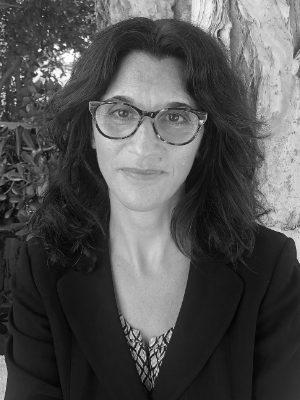
Lia Brozgal est professeur dans le Département de langues européennes et d’études transculturelles à l’université de Californie à Los Angeles (UCLA, États-Unis). Chercheuse et enseignante en littératures et cultures francophones, notamment dans le domaine de l’histoire culturelle de la France et du Maghreb, elle a publié récemment un ouvrage intitulé Absent the Archive : Cultural Traces of a Massacre in Paris, 17 October 1961 (Liverpool UP, 2020), qui analyse les représentations romanesques, cinématographiques, voire musicales, de cet épisode de violence policière. Elle est également l’auteur de Against Autobiography : Albert Memmi and the Production of Theory (U Nebraska P, 2014). Sa traduction du recueil Une enfance juive en Méditerranée musulmane (textes recueillis par Leïla Sebbar) est à paraître en 2022 avec University of California Press.
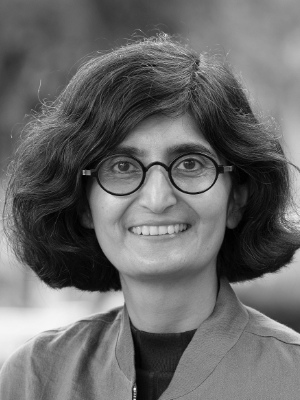
Nikita Dhawan holds the Chair in Political Theory and History of Ideas at the Technical University Dresden, Germany. Her research and teaching focuses on global justice, human rights, democracy and decolonization. She received the Käthe Leichter Award in 2017 for outstanding achievements in the pursuit of women’s and gender studies. Selected publications include Impossible Speech: On the Politics of Silence and Violence (2007); Decolonizing Enlightenment: Transnational Justice, Human Rights and Democracy in a Postcolonial World (ed., 2014); Reimagining the State: Theoretical Challenges and Transformative Possibilities (ed., 2019);Rescuing the Enlightenment from the Europeans: Critical Theories of Decolonization (forthcoming). She has been awarded the Gerda-Henkel-Visiting Professorship at Stanford University for the Winter academic quarter 2023.
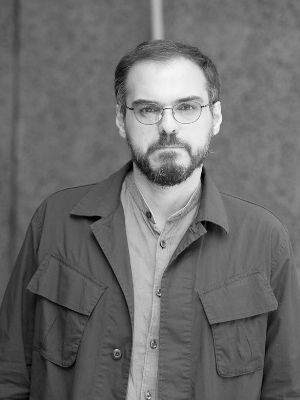
Anoush Ganjipour is a researcher at the Ecole Normale Supérieure (SAVOIRS) in Paris. His work focuses on the tradition of Islamic thought. Through a comparative approach, he tries to engage a critical dialogue with both this tradition and continental philosophy. He has recently edited a collective volume on Giorgio Agamben’s Homo Sacerentitled Politique de l’exil: Giorgio Agamben et l’usage de la métaphysique (Lignes, 2019). His most recent book is a monograph on Islamic political thought: L’ambivalence théologico-politique de l’islam: Pasteur ou Léviathan ? (Seuil, 2021).
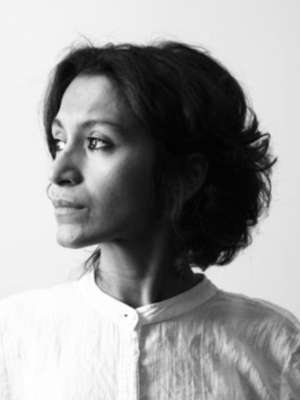
Elshan Ghasimi begann mit neun Jahren am Tehran Conservatory of Music klassische, persische Musik zu studieren. Sie lernte bei Majid Vasefi, Reza Vohdani und Fariborz Azizi sowie den Meistern Houshang Zarif und Hossein Alizadeh. Mit 17 Jahren wurde sie jüngstes Mitglied des Iranian National Orchestras (1998–2006) unter der Leitung von Farhad Fakhreddini. In Baku, Aserbaidschan führte sie ihre Ausbildung mit einer Lehre des Mugham (traditionelle, aserbaidschanische Form der Musik) und der kaukasischen Tar fort. In ihren Kompositionen greift Ghasimi klassische, literarische Themen auf und verbindet Musik, Performance und konzeptuelle Kunst. Seit 2016 lebt Ghasimi in Berlin.
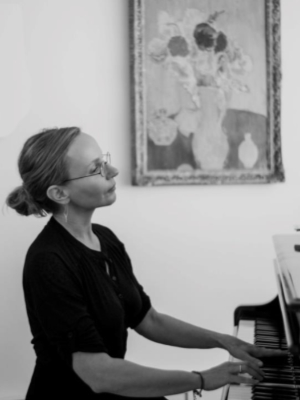
Eva Glasmacher ist eine klassisch ausgebildete Sängerin. Sie wuchs in Göttingen in einer musikalischen Familie auf, spielte Violine und Klavier und experimentierte schon in ihrer frühen Kindheit mit ihrer Stimme. Was als spielerische Neugier begann, entwickelte sich zu dem glühenden Wunsch, mehr zu lernen. So zog sie nach München, um dort an der staatlichen Musikhochschule bei Professor Reri Grist zu studieren. Als freie Sängerin arbeitete sie zusammen mit verschiedenen internationalen Künstlern und Institutionen, die sie dazu inspirierten, viele musikalische Facetten zu entwickeln: die Münchener Biennale, das IRCAM Paris, das PICCOLO TEATRO di Milano, das JOYCE THEATER NEW YORK, Yehudi Menuhins Life Music Now Project, der Dirigent Peter Rundel, der Intendant und Komponist Peter Ruzicka, die Regisseure Claus Guth und Johannes Schuetz, der Pianist Markus Hinterhäuser die Komponisten Joerg Widmann, Sandeep Bhagwati und Matthias Pintscher. Sie sang als Solistin die Matthäus Passion von J.S. Bach mit dem Dresdner Kreuzchor, arbeitete als Sopransolo vieler Uraufführungen mit dem OENM österreichisches Ensemble für neue Musik zusammen, nahm mit dem Saxophonisten Mulo Francel eine CD „Lost & Found“ auf, mit deren Repertoire aus Tango, jiddischen Liedern, Chanson und Jazz sie durch Deutschland und Italien tourten. Bei der Uraufführung des Balletts Bacchae von Paolo Aralla und Luca Veggetti mit der New Yorker Tanz Company MORPHOSES arbeitete sie als Stimme mit der Tänzerin Frances Chiaverini zusammen.
„Eva Glasmacher, ein makelloser Sopran mit wundervollen hohen Tönen und menschlicher Wärme.“ (Radio Berlin)
Eva Glasmacher unterrichtet auch Gesang. In ihrem ganzheitlichen Konzept arbeitet sie an Körperhaltung, Atem und Resonanz und experimentiert mit Klang und Ausdruck. Sie bezieht Elemente aus der Bewegungssprache des Gaga Movement mit ein.
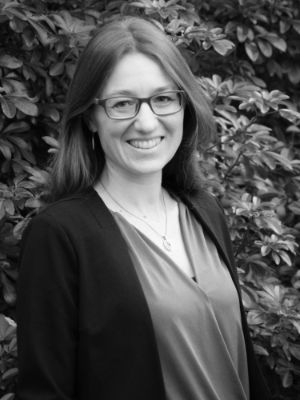
Judith Gruber is professor of Systematic Theology and director of the Centre for Liberation Theologies at KU Leuven, Belgium. She received her Ph.D. in Systematic Theology from Salzburg University, Austria. From 2012-2017, she was assistant professor of Systematic Theology at Loyola University, New Orleans. Her research is situated at the intersection of theology and critical cultural studies, with a particular focus on Intercultural Theology and Postcolonial Theology. Publications include Intercultural Theology. Exploring World Christianity after the Cultural Turn (2017) and her recent article, “White Innocence/White Supremacy. Exploring the Theo-political Intersections of Race and Salvation” (JRAT 2022 7/2, p. 515-538).
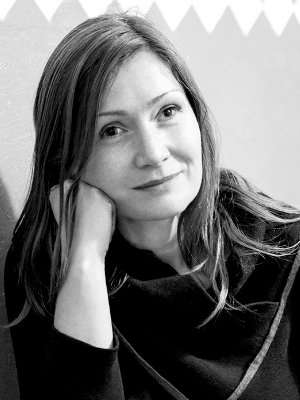
Claudia Hamm ist Literaturübersetzerin, Autorin und Theaterregisseurin. Sie brachte Autoren wie Emmanuel Carrère zum Verlag Matthes & Seitz Berlin, übersetzt für den Hanser Verlag die Werke von Joseph Andras, schreibt Essays (u.a. für den Merkur), unterrichtet am Literaturinstitut Hildesheim und inszenierte in Deutschland, der Schweiz, Österreich, Frankreich und Italien. Für ihre Übersetzung von Emmanuel Carrères „Das Reich Gottes“ erhielt sie 2016 den Übersetzerpreis des Kulturkreises der deutschen Wirtschaft und war für den Preis der Leipziger Buchmesse nominiert.
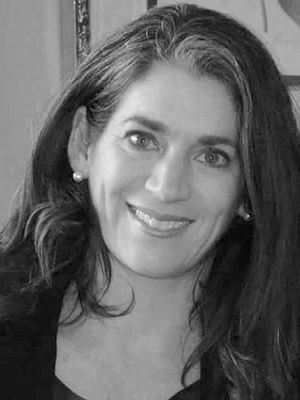
Sarah Hammerschlag is Professor for Religion and Literature at the University of Chicago. Her research thus far has focused on the position of Judaism in the post-World War II French intellectual scene, a field that puts her at the crossroads of numerous disciplines and scholarly approaches including philosophy, literary studies, and intellectual history.
She is the author of The Figural Jew: Politics and Identity in Postwar French Thought(University of Chicago Press, 2010) and Broken Tablets: Levinas, Derrida and the Literary Afterlife of Religion(Columbia University Press, 2016) and the editor of Modern French Jewish Thought: Writings on Religion and Politics (Brandeis University Press, 2018)
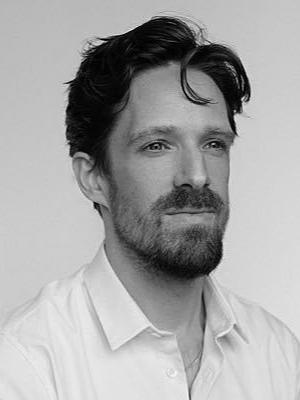
Hanno Hauenstein has been the head of department in the culture book of the weekend edition of the Berliner Zeitung since 2021 and is responsible among other things, for the art and political feature sections. He studied philosophy and literature between Tel Aviv and Berlin. As a freelance journalist, he has published for ZEIT Online, frieze Magazine and the taz, among others. In 2014, he edited the German-Hebrew art and literary magazine,Aviv. In 2020, he joined daily edition of Berliner Zeitung as an editor.
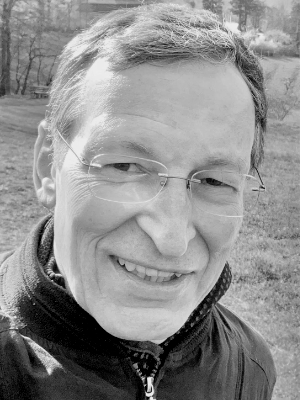
Felix Körner, S.J., (* 1963 in Germany) publishes in theology of religions (esp., Christian–Muslim dialogue), on present-day Islamic thought (specialising in Qur’anic hermeneutics) and on the theology of Wolfhart Pannenberg. He holds doctorates in Islamic Studies (PhD, Bamberg) and Catholic Dogmatics (STD, Fribourg). He lived in Ankara, Turkey, promoting dialogue with Islamic Theologians (2002–2008) and served at the Gregorian University, Rome (2008–2019): as director of the Interreligious Studies Center, as dean of the Faculty of Missiology, and as professore ordinario at the Faculty of Theology. He was Fellow at the Institute for Advanced Studies (Wissenschaftskolleg), Berlin (2019/20). Since October 2021, he holds the Nicolaus-Cusanus-Chair for Theology of Religions at the Institute of Catholic Theology of Berlin’s Humboldt University. His most recent book is Political Religion. How Christianity and Islam Shape the World, New York (Paulist) 2020. His personal website is www.felixkoerner.de.
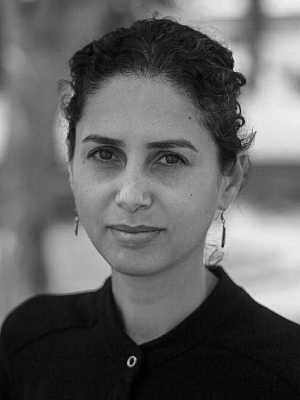
Zahiye Kundos is a literary scholar, specializing in modern Islam, Arabic literature and the critique of modernity. She is completing her first book: In the Name of God we Will be Modern (Once Again): The Re-Religious Turn of Jamāl al-Dīn al-Afghānī and Muhammad ʿAbduh and the Critique of European Modernity. In her current project, ‘The Afterlife of Muhammad ʿAbduh in Arabic Literature,’ which focuses on the Egyptian canon, Kundos demonstrates the influence of modern religious reforms on the development of Arabic literature. She is a member of the editorial advisory board at Political Theology Beyond, a public scholarship project from the journal Political Theology. She is a fellow at the Forum Transregionale Studien, Berlin, with the support of the Minerva Foundation.
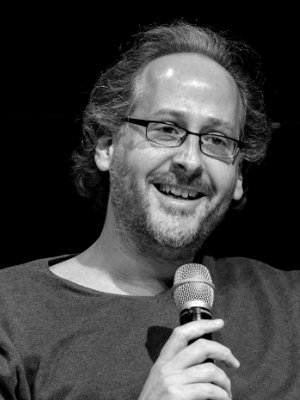
Elad Lapidot is professor for Culture Studies at the University of Lille, France. He specializes in philosophy, Jewish thought and Talmud and was teaching at the University of Bern, Switzerland, the Humboldt Universität Berlin and the Freie Universität Berlin. His work is guided by questions concerning the relation between knowledge and politics. Among his publications: Jews Out of the Question. A Critique of Anti-Anti-Semitism (SUNY Press, 2020), Hebrew translation with introduction and commentary of Hegel’s Phänomenologie des Geistes, Vol. 1 (Resling, 2020), Heidegger and Jewish Thought. Difficult Others, (Rowman & Littlefield, 2018), and Etre sans mot dire : La logiqe de ‘Sein und Zeit’ (Zeta Books, 2010).
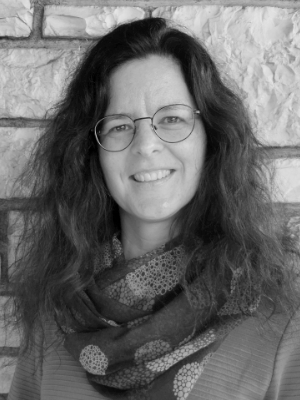
Sigrid Rettenbacher, Mag.a Dr.in, PhD in Systematic Theology (Thesis: “Outside Ecclesiology no Theology of Religions. Epistemological and Ecclesiological Reflections on Theology of Religions in a Postcolonial Perspective”), 2009-2013 university assistant at the Centre for Intercultural Theology and Study of Religions/Department for Systematic Theology, University of Salzburg, 2017-2020 operational manager of the university course “Pastoraljahr” at the University of Innsbruck, since 2020 assistant professor for Moral Theology/Ethics at the Faculty of Theology in Linz, research fields: theology and postcolonial theories, ecclesiology, questions of identity, representation and power, religious and cultural plurality,genderstudies
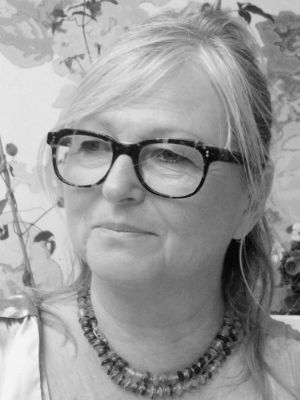
Regina Römhild held teaching positions at places at Goethe University and Ludwig Maximillian University of Munich before joining Humboldt University’s Institut für Europäische Ethnologie in 2009. Regina took part in research projects such as co-directing the transdisciplinary research project Transit Migration (2003 – 2006) and co-curating the related collective exhibition Projekt Migration (2005, Cologne); she also the co-founder of the Interdisciplinary Centre of Transnational Border Studies at Humboldt-Universität and the related Interdisciplinary Research Colloquium on Border Studies and Critical Migration Research.
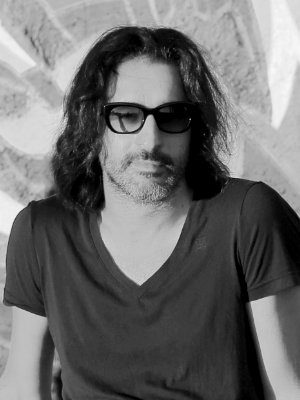
Based in Berlin since 2010, Steve Sabella, born in Jerusalem, Palestine, is an award-winning artist and writer. Sabella uses photography and photographic installations as his primary modes of expression. He earned a master’s degree in Photographic Studies from the University of Westminster, and a master’s in Art Business from Sotheby’s Institute of Art, London.
Sabella received the Ellen Auerbach Award from the Akademie der Künste Berlin in 2008, leading to a published study covering twenty years of his art. His memoir on the colonization of the imagination, The Parachute Paradox, published by Kerber Verlag in 2016, received international recognition winning two awards for best memoir.
Sabella’s life and art have been subject to several documentaries. His art has been exhibited internationally and is held in private and public collections, including those of the British Museum in London, The Arab World Institute Museum in Paris, and Mathaf: Arab Museum of Modern Art in Doha in which he was one of the 23 commissioned artists for its inaugural exhibition in 2009. In 2014, The International Center for Photography Scavi Scaligeri in Verona held Sabella’s first major retrospective exhibition, Archaeology of the Future.
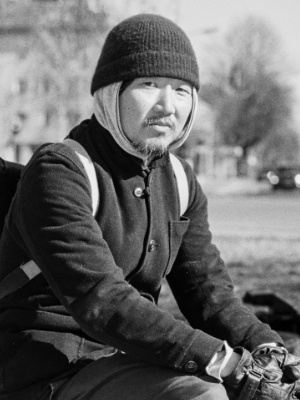
강선구 (Kang Sunkoo) lives and works as a visual artist in Basel. His two-part bronze sculpture “Statue of Limitations” connects two sites of German colonial history – the Humboldt Forum in the Berlin Palace and the Nachtigalplatz in the Afrikanisches Viertel in Berlin. Currently, Kang is realizing two other public art projects in Berlin, at the Bundesministerium des Innern und für Heimat (Federal Ministry of the Interior) and the Bundesamt für Strahlenschutz (Federal Office for Radiation Protection).
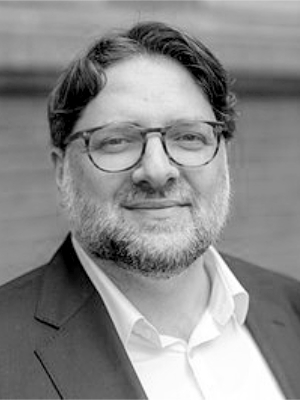
Ufuk Topkara (Assistant Professor for Comparative Theology from an Islamic Perspective, Humboldt University Berlin), holds a PhD in Islamic Theology from the Graduate School for Islamic Theology in Germany. Dr. Topkara has worked in inter-religious affairs, holding an MA in German-Jewish History from the Humboldt University Berlin and training in comparative theology. He is the author of two books, Umrisse einer zeitgemäßen philosophischen Theologie im Islam. Die Verfeinerung des Charakters (Metzler Springer Publishing) and Happiness, Justice, and Friendship in Miskawayh’s Tahdib al-Ahlaq (forthcoming with Routledge Press).
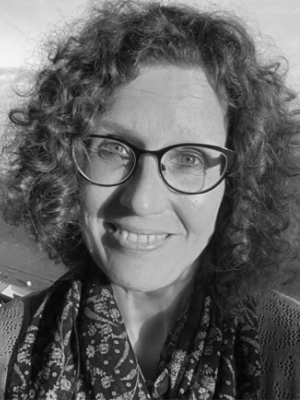
Claudia Welz is professor of Ethics and Philosophy of Religion at the School of Culture and Society, Aarhus University. She is the PI of the interdisciplinary project “Epistemological Aspects of ‘Dialogue’: Exploring the Potential of the Second-Person Perspective” and the co-director of the Research Unit for Kierkegaard Studies.
Her research focuses on questions of orientation and draws mainly on Continental philosophy (particularly existential hermeneutics, phenomenology, philosophy of dialogue and of emotion), Systematic Theology in an interreligious context, modern Jewish thought, environmental ethics, arts-based methodology and religious motifs in contemporary literature.
She has authored the monographs Love’s Transcendence and the Problem of Theodicy (Mohr Siebeck, 2008); Vertrauen und Versuchung (Mohr Siebeck, 2010); Humanity in God’s Image: An Interdisciplinary Exploration(Oxford University Press, 2016); and the essay collection SinnSang: Theologie und Poesie(Nordpark-Verlag, 2019) about the work of the poet Elazar Benyoëtz. She is currently working on an ethical, theological, and psychological phenomenology of listening.
Program
| Tuesday, October 25 | Katholische Akademie, Auditorium A |
| Evening Event | Intercultural Relations in Postwar Algerian Literature |
| 19:00 | Sadia Agsous (University Paris 8 Vincennes Saint-Denis): Postcolonial Algeria and the (re)Definition of Algerian Literature Lia Brozgal (UCLA): Algerian Literature and the « Jewish Turn » Claudia Hamm (Berlin): The German Perception of France – Joseph Andras Corrects a Myth Concert: Eva Glasmacher and Elshan Ghasimi – “Je n’ai qu’une langue et ce n’est pas la mienne” Youtube link: https://youtu.be/oNP3kgzUPXM |
| Wednesday, October 26 | Katholische Akademie, Seminarraum 5, 3. OG |
| Postcolonial Dialogue | Chair: Iskandar Ahmad Abdalla (Freie Universität Berlin) |
| 10:00-11:30 | Felix Körner (Humboldt University Berlin): Theological Interaction. A Critical Approach to Interreligious Dialogue Claudia Welz (Aarhus University): Possibilities and Limits of Dialogue in a Postcolonial Age: How to Achieve Epistemic Growth? |
| 11:30-12:00 | Coffee Break |
| Postcolonial Theology | Chair: Gesine Palmer (Katholische Akademie Berlin) |
| 12:00-13:30 | Judith Gruber (Katholieke Universiteit Leuven): Critique of Self-Decolonization in Intercultural Theology Sigrid Rettenbacher (Katholische Privatuniversität Linz): Entangled Histories in the Third Space. Prospects of Postcolonial Theologies |
| 13:30-14:30 | Lunch Break |
| Postcolonial Europe | Chair: Mahmoud Al-Zayed ((Freie Universität Berlin) |
| 14:30-15:30 | Sandeep Bhagwati (Concordia University): Śabdagatitāra or: How Colonialist Encounters Changed Europe’s Concept of Musicking – and How Post-Colonial Practices Now May Change It Again. |
| 15:30-17:30 | Joshua Kwesi Aikins – A Guided Tour in Berlin Mitte: Indelible Imprints – The Everyday Presence of the Colonial Past |
| 17:30-19:00 | Break |
| Evening Event | The Postcolonial Question in Germany Today |
| 19:00 | Nikita Dhawan (Technical University Dresden): Unfinished Conversations: Postcolonial and Holocaust Studies Schirin Amir-Moazami (Freie Universität Berlin): Minority Management and the ‘Muslim Question’ in Europe: Postcolonial ‘Recursions’ Regina Römhild (Humboldt University Berlin): Postcolonial „throwntogetherness“: A minor cosmopolitan perspective from the postmigrant society Youtube link: https://youtu.be/CuXygXbGk8s |
| 21:00 | Dinner |
| Thursday, October 27 | Katholische Akademie, Seminarraum 5, 3. OG |
| Postcolonial Jewishness | Chair: Yaniv Feller (University of Florida) |
| 10:00-11:30 | Sarah Hammerschlag (University of Chicago): “Does the world need Jews?”: Jewish Exemplarity and the Anxiety of Other Forms of Otherness Elad Lapidot (University of Lille): The Birth of Postcolonial Zionism from Decolonial Anti-Zionism Yael Attia (University of Potsdam): Specters of Algeria: Unrealized Futures in French North-African Jewish Thought |
| 11:30-12:00 | Coffee Break |
| 12:00-13:00 | Discussion |
| 13:00-14:00 | Lunch Break |
| Postcolonial Islam | Chair: Elisabeth Topkara (Universität Heidelberg) |
| 14:00-15:30 | Zahiye Kundos (Forum Transregionale Studien): Please, Don’t Call Me Habibti; Rethinking ‘Solidarity’ in Arabic and Islamic Terms Anoush Ganjipour (CNRS-ENS): Getting rid of the political Weltanschauung : Henry Corbin’s Islamic philosophy as an antidote to the Hegelianism Ufuk Topkara (Humboldt University Berlin): A Systematic Approach to Contemporary Islamic Thought through Engagement with Jewish Thinkers |
| 15:30-15:45 | Coffee Break |
| 15:45-16:45 | Discussion |
| 16:45-17:00 | Coffee Break |
| Artist Talks | Decolonizing Representation |
| 17:00-18:30 | Moderator: Hanno Hauenstein, Head Editor of Culture, Berliner Zeitung Steve Sabella: Decolonizing The Imagination Kang Sunkoo: Statue of Limitations |
| 19:00 | Dinner |





